China Arts & Entertainment
Top 30 Classic TV Dramas in China: The Best Chinese Series of All Time
This year marks 60 years of Chinese TV drama. These are the best Chinese TV dramas of all time.
Published
6 years agoon
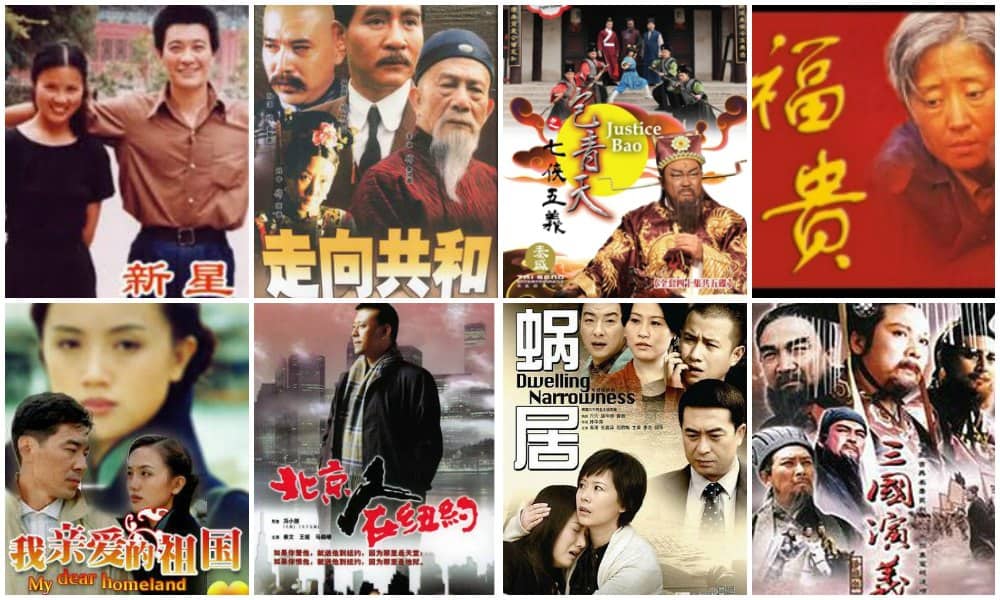
PREMIUM CONTENT ARTICLE
First published
They might have aired 30 years ago, but some TV dramas just never get old. We have listed the greatest classic Chinese TV dramas of all time, that, either because of their high-production value or historic ratings, are still talked about today. A special overview by What’s on Weibo, as China celebrates 60 years of TV drama this year.
This year marks the 60th anniversary of Chinese TV drama since the airing of the very first (one-episode) drama A Mouthful of Vegetable Pancakes (一口菜饼子) in 1958 – the same year in which the very first Chinese television station started broadcasting (Bai 2007, 77).
The drama, live broadcasted by Beijing Television, sent out a message of frugality, as one young girl warns her sister not to waste food by remembering her of their difficult past and brave mother, who died of hunger while even refusing to eat the last bit of food, a vegetable pancake.

A Mouthful of Pancakes aired in 1958.
Much has changed within those sixty years. After a time when the production of TV dramas practically came to a standstill during the Cultural Revolution, the late 1970s and early 1980s saw a boom in the popularity of television dramas, along with a spike in households that owned their own TV. From 1980 to 1990, the number of household television sets in China increased from 5 to 160 million (Wang & Singhal 1992, 177).
Since the 1980s, mainland China has gone from a country where most television dramas were imported from outside the country, to one that has the most thriving domestic TV drama industry in the world.
Some TV dramas in this list have become classics through time, some are fairly new but have already become classics within their genre.
This list has been fully compiled by What’s on Weibo, based on popularity charts on Chinese search engine Sogou’s top tv drama listings of all time, together with ranking on Douban, a big Chinese social networking service and influential media review website, and also based on academic sources that note the importance of some of these TV classics.*1 We will list a recommendation list of relevant books at the end of this article.
Most of these series will have links redirecting to available versions on Youtube or elsewhere – unless written otherwise, they do not have English subtitles. Please share English subtitled versions in the comment section if you found them, we’ll add them to the list.
This article is focused on those classics that have been important for the TV drama industry and audiences of mainland China. Although several of them were produced in Hong Kong or Taiwan, the majority is from the PRC. These dramas are listed in chronological order of appearance, not listed based on rankings.
Here we go!
#1 The Bund / The Shanghai Bund (上海滩)
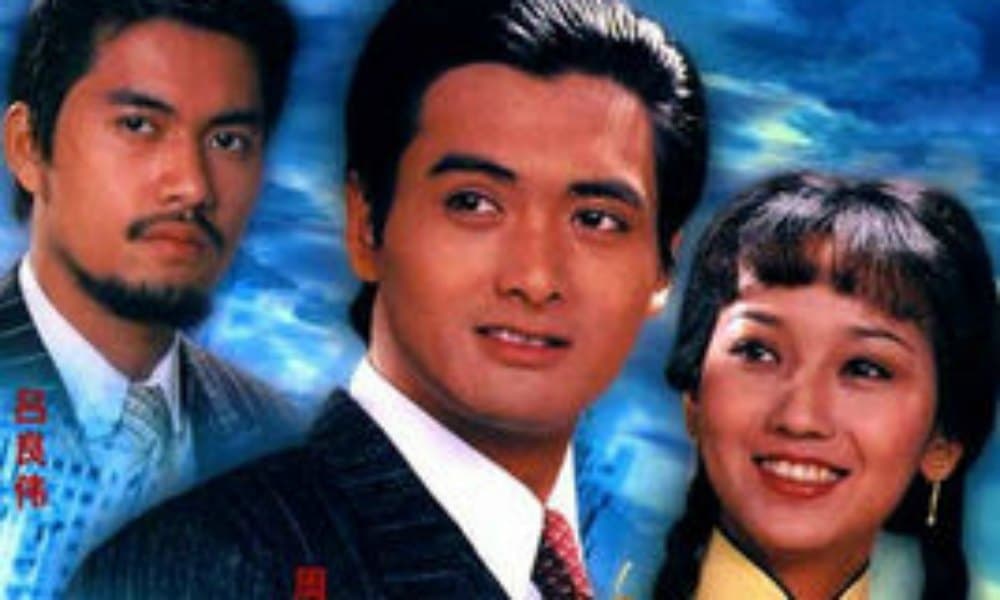
Year: 1980
Episodes: 25
Genre: Action
Produced in Hong Kong
Noteworthy: “The Godfather of the East”
This TV drama became such a sensation across China in 1980, that it also became known as the Chinese equivalent to the classic Godfather series.
Actors Angie Chiu and Chow Yun-Fat star in this Hong Kong drama, that is set in the underworld society of 1920s Shanghai, and revolves around the tumultuous love story between Feng Chengcheng and Xu Wenqiang.
The series has become such a classic that it still plays an important role in popular culture of China today, with newer films and TV dramas also being based on the original series (the 2007 mainland China TV series Shanghai Bund, for example, is a remake of the 1980 original). If you ever go to karaoke, you’re probably already familiar with the shows’ famous theme song ‘Seung Hoi Tan’ (上海滩) by Frances Yip (see here).
#2 Eighteen Years in the Enemy’s Camp (敌营十八年)
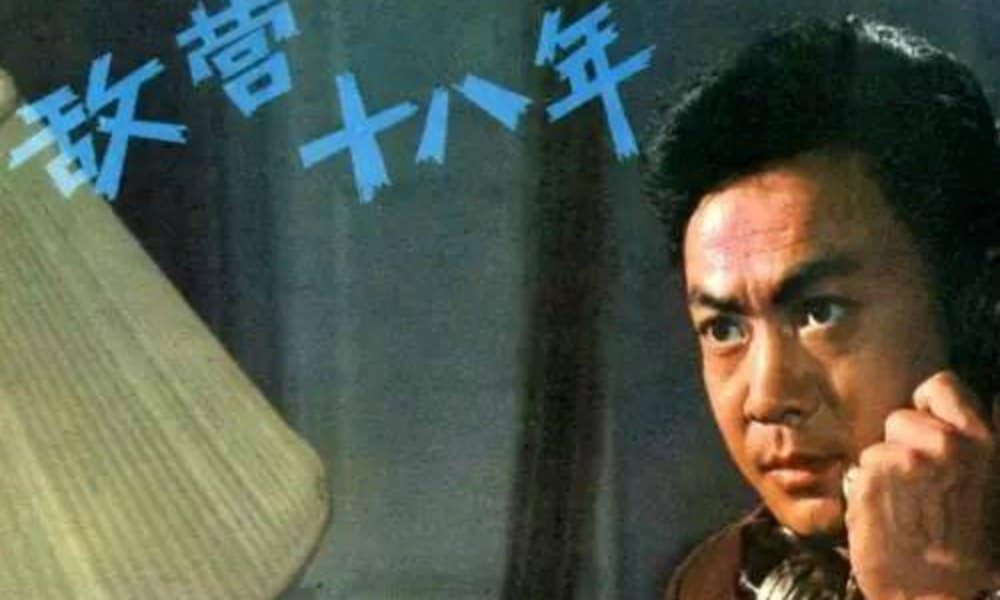
Year: 1981
Episodes: 9
Genre: War Drama
Watch the first episode here on Youtube.
Noteworthy: “The first TV drama produced by CCTV”
Eighteen Years in the Enemy’s Camp is somewhat of a cult classic in China. Despite the fact that the TV drama itself was somewhat poorly produced, it still gets high ratings on sites such as QQ Video or Douban today.
At a time when the Chinese TV drama market was still dominated by imported television series (from Hong Kong, US, and other places), Eighteen Years in the Enemy’s Camp was the first drama series made by CCTV (Bai 2007, 80), directed by Wang Fulin (王扶林) and Du Yu (都郁).
The story revolves around the Communist Party member Jiang Bo (江波), who spends 18 years undercover in the “tiger’s den” (虎穴), the enemy’s camp, as a National Army officer, thwarting the Nationalists’ plans until the 1949 victory of the Communists.
Fun fact by Ruoyun Bai (see references): despite the fact that the entire show is about the Nationalists Army, not a single Nationalist Army uniform could be found for the cast. The uniforms that were used, were not up to par: the main character had to leave his coat’s collar unbuttoned because it was too tight, and always has his hat in his hands because it was actually too small to fit his head (2007, 80-81).
#3 Ji Gong (济公)
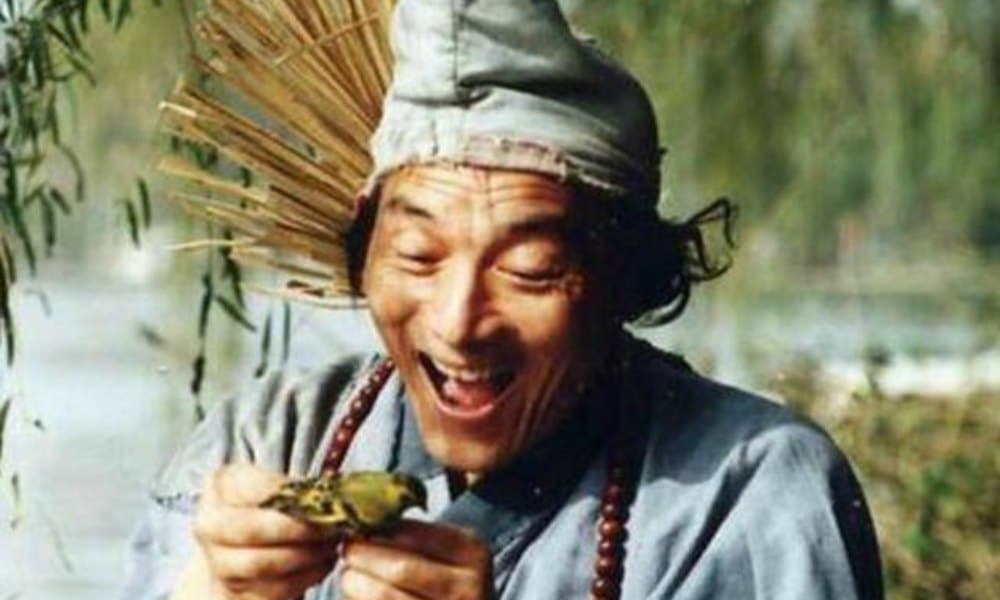
Year: 1985
Episodes: 12
Genre: Fantasy
Directed by Zhang Ge (张戈)
All episodes can be watched here on YouTube.
Noteworthy: “Influenced by Charlie Chaplin”
This popular TV series is centered around Ji Gong, the folk hero and Chan Buddhist monk who lived in the Southern Song and, according to legend, had supernatural powers and spent his whole life helping the poor.
The main role is played by renowned Chinese artist and mime master You Benchang (游本昌). In an interview with CRI, the actor once said that he was heavily influenced by his idol Charlie Chaplin for this role, sometimes even imitating some of Chaplin’s gestures.
#4 Chronicles of The Shadow Swordsman (萍踪侠影)

Year: 1985
Episodes: 25
Genre: Wuxia/Martial
Directed by: Wang Xinwei (王心慰)
Produced in Hong Kong
Episodes available on Youtube here.
Noteworthy: “Perfect Chemistry between Leading Actors”
This classic TV drama features actors Damian Lau as Zhang Danfeng and Michelle Yim as Yun Lei, whom are often praised by drama lovers for their perfect chemistry in these series. Of the many adaptations there are of Liang Yusheng’s wuxia novel Chronicles of The Shadow Swordsman, many say this is their favorite.
#5 New Star (新星)

Year: 1986
Episodes: 12
Directed by: Li Xin (李新)
Noteworthy: “A drama anyone over 50 will remember”
This CCTV mini-drama, based on the novel by Ke Yunlu (柯云路), tells the story of a young Party secretary fighting against corruption. Before Heaven Above (later in this list), it is thus one of the very first dramas to focus on corruption as a theme, and it also caused a buzz at the time for doing so – most people over 50 in China today will probably remember this TV series today.
#6 Journey to the West (西游记)
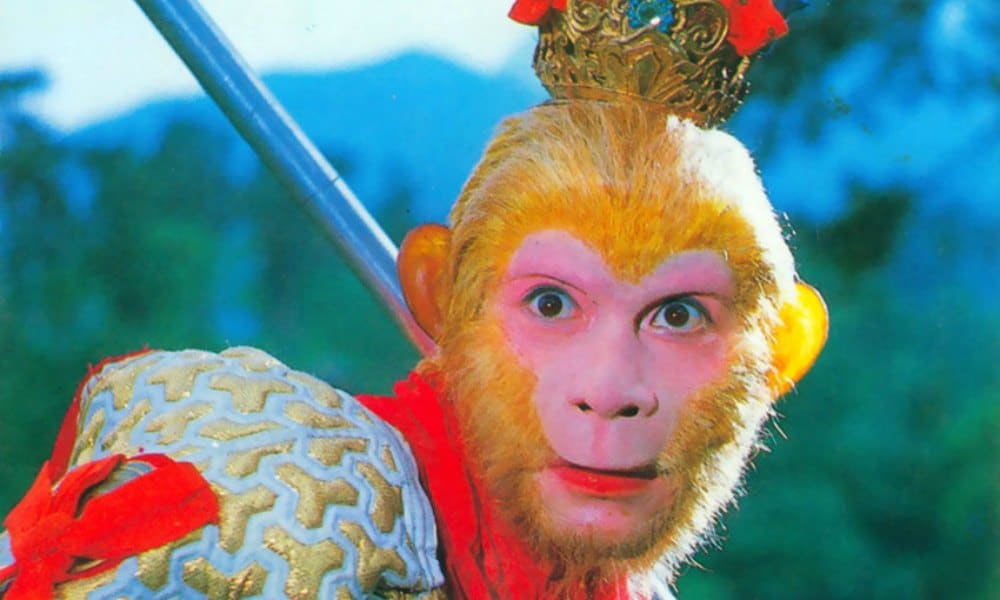
Year: 1986
Episodes: 25 for season one, 16 episodes for season 2
Directed by Yang Jie (杨洁)
Watch on Youtube (with English subtitles!) here.
Noteworthy: “Shot with one camera”
This is an all-time favorite TV series in China that is still rated with a 9.5 on the TV drama database of search engine Sogou. It has been an instant classic from the moment it was first broadcasted by CCTV in October of 1986.
Journey to the West (Xīyóu jì 西游记), published in the 16th century (Ming dynasty), is one of the most important classical works in the history of Chinese literature, and tells the story of the long journey to India of the Tang Monk Xuánzàng, who is on a mission to obtain Buddhist sutras. He is joined by three disciples, the pig demon Zhū Bājiè, the river demon Shā Wùjìng, and Sūn Wùkōng, who is better known as the Monkey King in the West.
The Monkey in the series is played by Zhang Jinlai (章金莱), also known as Liu Xiao Ling Tong, who recently recalled in an CGTN article that: “it was 30 years ago and we’d got only one camera. We walked around China’s picturesque areas and took 17 years to make 41 episodes. 17 years equals Monk Xuanzang’s pilgrimage for the Buddhist scriptures.”
#7 “The Dream of Red Chambers” (红楼梦)
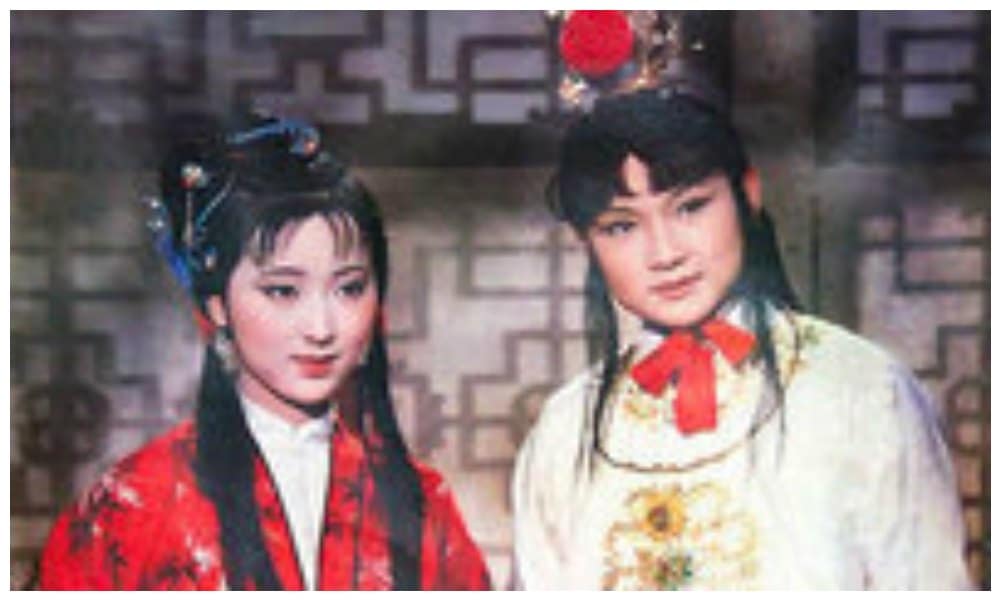
Year: 1987
Episodes: 36
Directed by: Wang Fulin (王扶林)
Watch with English subtitles on YouTube here.
Noteworthy: “The first entry of Chinese tv drama into the global market”
Even today, this CCTV TV series from 1987 is still rated as one of the best Chinese television series of all time on Sogou, where viewers rate it with a 9.6.
Like other series in this list, this is an adaptation from a classic literary work; Dream of the Red Chamber (Hónglóumèng), one of China’s Four Great Classical Novels, which was written by Cao Xueqin in the mid-18th century during the Qing.
In June of 1987, this TV drama became the first Chinese television series to be exported to Malaysia and West-Germany, making it “the first entry of Chinese tv drama into the global market” (Hong, 32).
#8 The Investiture of the Gods (封神榜)
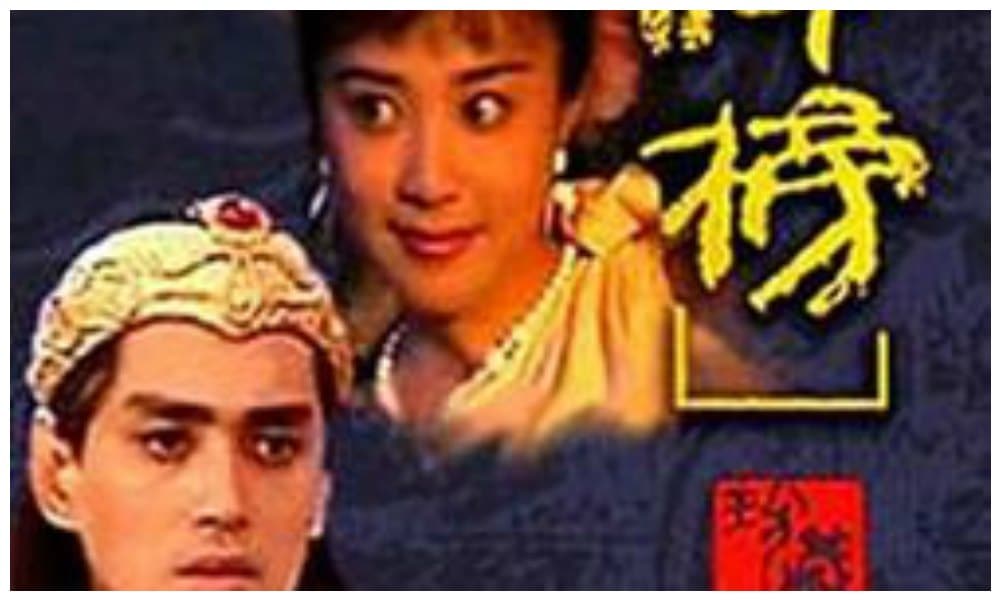
Year: 1990
Episodes: 36
Genre: Fantasy/Costume Drama
Directed by: Guo Xinling (郭信玲)
The first episode is available on YouTube here.
Noteworthy: “Based on the classical novel Fengshen Yanyi“
This TV series is based on the classical novel Fēngshén Yǎnyì (封神演義), also known as Investiture of the Gods or Creation of the Gods), written by Xu Zhonglin and Lu Xixing. Famous Chinese actor and painter Lan Tianye (蓝天野) was praised for his role as Jiang Ziya in this drama.
The (female) director Guo Xinling (1936-2012) was a Party member who worked on many televised works during her career.
Just as many others of the series in this list based on classic novels, there are remakes of these series in recent times.
#9 Yearnings / Kewang (渴望)
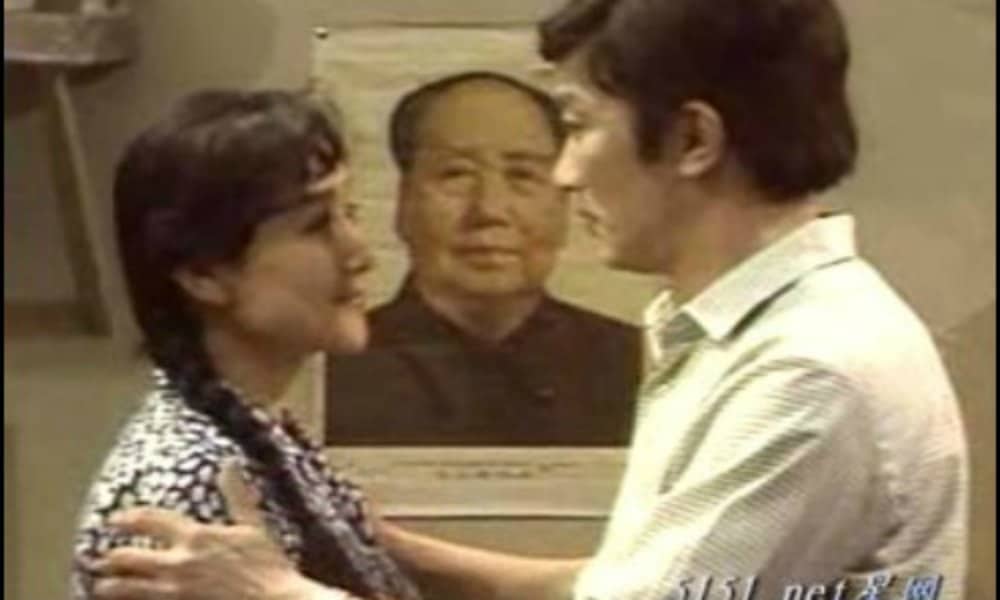
Year: 1990
Episodes: 50
Genre: Family drama
Directed by Lu Xiaowei (鲁晓威) and Zhao Baoguang (赵宝刚).
Noteworthy: “China’s first soap opera – a national craze”
Yearnings is also known as China’s real first soap opera, which caused a sensation across the nation – sales of TV sets surged, and streets were empty when it aired.
The story’s time spans from the Cultural Revolution until the 1980s reform period. The series, set in Beijing, tells the story of working-class woman Liu Huifang and her unlikely marriage to the middle-class Wang Husheng, a university graduate who comes from a family of intellectuals. When Huifang finds an abandoned baby, she adopts it against the will of her husband.
As the first TV series that focused on the hopes and dreams of ordinary Chinese people, the success of Yearnings was unprecedented, and it formed the beginning of Chinese television drama as we know it today.
#10 River of Gratitude (江湖恩仇录)

Year: 1989
Episodes: 20
Genre: Wuxia/Martial
Directed by: Mao Yuqin (毛玉勤)
Watch first episode on Youtube here
Noteworthy: “A true classic – it’s nostalgia!”
One of the main stars in this series is actress and producer Wenying Dongfang (东方闻樱), who also starred in A Dream in Red Mansion (1987).
By commenters on Douban, this series is described as a “cult classic.” Although some say the quality of the series, now, looking back, is somewhat substandard or silly, according to many, the nostalgia of seeing it in the early 1990s and being excited about it seems to play a major factor in why people still grade this one as a true classic – it’s nostalgia!
#11 Wan Chun (婉君)
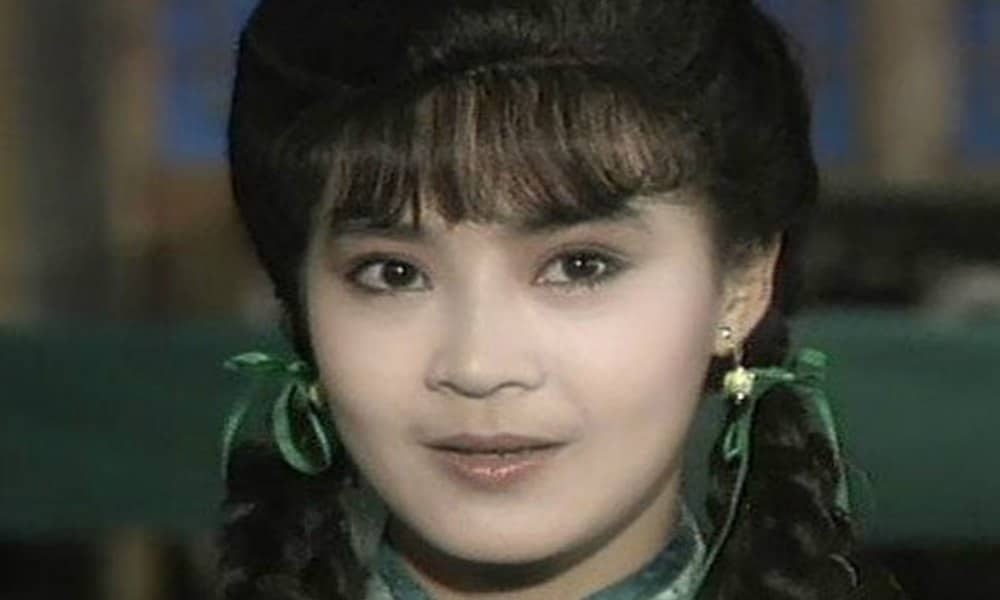
Year: 1990
Episodes: 18
Produced in Taiwan
Noteworthy: “The first Taiwanese TV series filmed in mainland China”
Wan Chun is a 1990 Taiwanese television series about a girl named Wan Chun and her three adoptive brothers, that is based on the 1964 novel “Wan-chun’s Three Loves” (追尋) by Taiwanese writer and producer Chiung Yao, and which is set in Republican era Beijing.
This is the first cross-strait co-production, as a Taiwanese TV series filmed in mainland China. Wan Chun was followed up by the 1990 Taiwanese television drama series Mute Wife based on Chiung Yao’s 1965 novelette of the same name.
#12 The Legend of Qianlong (戏说乾隆)
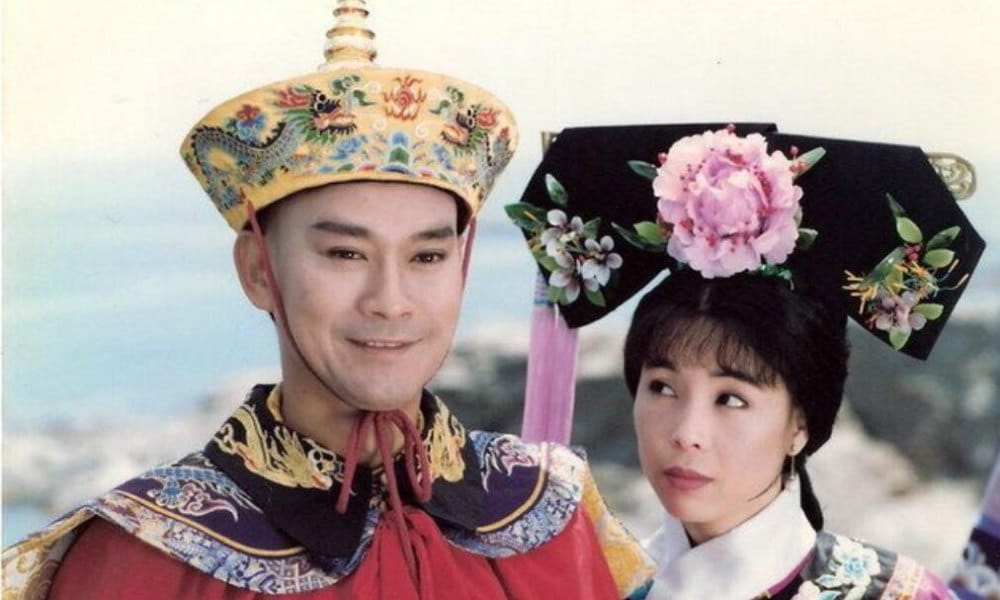
Year: 1991
Episodes: 41
Genre: Imperial drama
Produced in Taiwan (Taiwan-mainland co-production)
Watch on Youtube here
Noteworthy: “The beginning of a genre”
In today’s TV drama environment of China, dramas that focus on life during the imperial era are ubiquitous, with titles from the Imperial Doctress to Story of Yanxi Palace being everywhere.
But when this drama aired in the early 1990s, it was something quite new. The Legend of Qianlong, also known with the English translation A Fanciful Account of Qianlong, tells the (fictional) stories of the Emperor Qianlong’s Tours of Southern China.
It was the beginning of a drama genre that turned out to be hugely popular, with many new television series focusing on emperors and empresses in their youth or their tumultuous lives during the height of their power (Barme 2012, 33). Perhaps, this 1991 series will always be a classic just because it was one of the first within its genre.
#13 The Legend of the White Snake (新白娘子传奇)
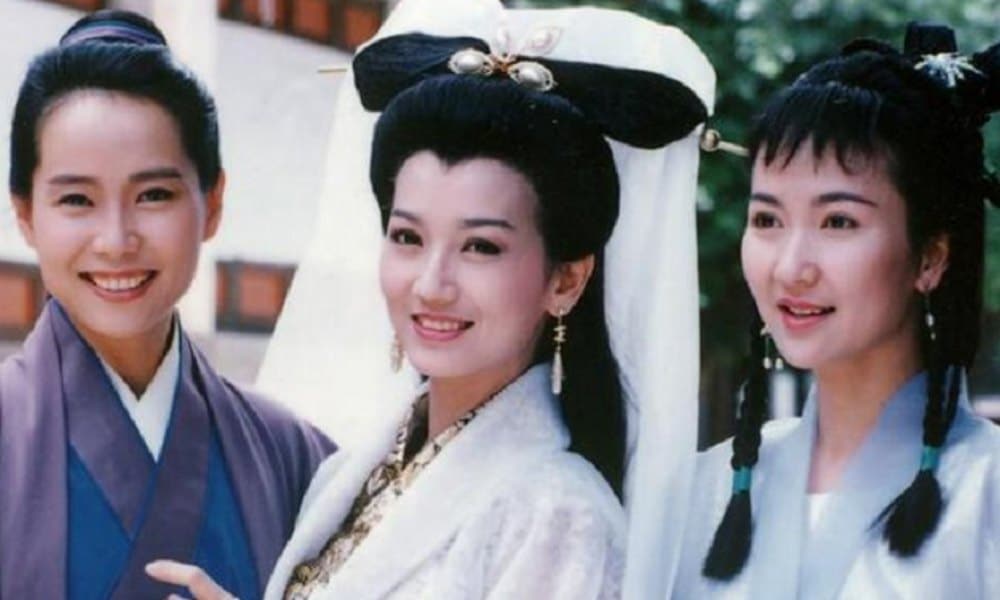
Year: 1992
Episodes: 50
Genre: Fantasy
Produced in Taiwan
Noteworthy: “One of the most replayed TV series”
As many of the classics in this list, this hit TV series is also based on a folk legend, namely that of Madame White Snakee, a mythical snake-like spirit who strives to be human, which is a source for many major Chinese operas, films.
The 1992 TV series stars Angie Chiu and Cecilia Yip. In 2016, it was still one of the most replayed TV series. Even on IMDB, it is rated with an 8.2.
#14 Beijinger in New York (北京人在纽约)
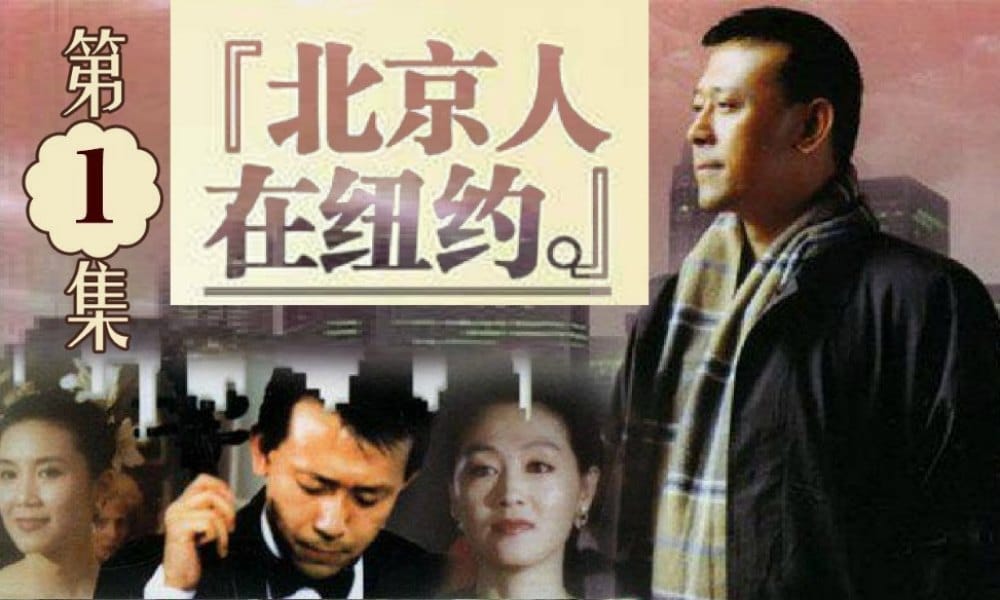
Year: 1993
Episodes: 21
Watch: YouTube
Buy novel (in English): Beijinger in New York
Noteworthy: “The first Chinese-language TV show to be shot in the United States”
The TV series Beijinger in New York, also known as A Native of Beijing in New York, based on the novel by Glen Cao (Cao Guilin), was a hit when it was first broadcasted broadcast nightly on CCTV and watched by millions of Chinese.
The story follows the immigrant life of cello player and Beijinger Wang Qiming (王起明), who arrives in New York in 1980 together with his wife, and begins working as a dishwasher the next day.
The TV series marks a first in several aspects. It was the first Chinese-language TV show to be shot in the United States, but it was also the first time ever for the production of a Chinese TV drama that a bank loan was used in order to make it possible (Bai 2007, 83); in other words, it also marks the start of a more commercialized TV drama environment. FYI: the bank loan that was used was a total of US$1.3 million.
#15 I Love My Family (我爱我家)
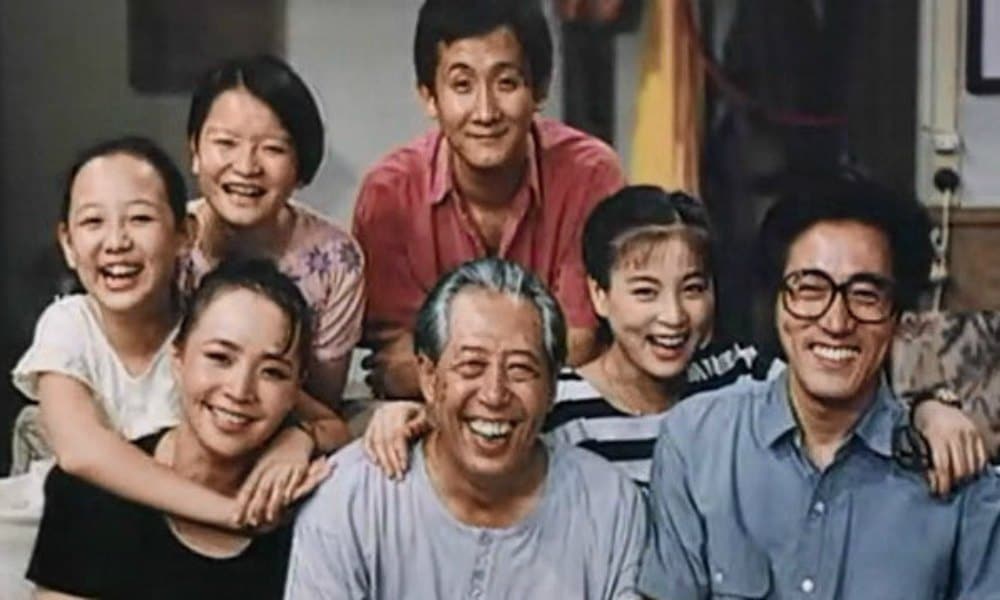
Year: 1993
Genre: Comedy
Episodes: 120
Directed by Ying Da (英达) et al
First episodes on Youtube here.
Noteworthy: “First Mandarin-language sitcom”
I Love My Family (Wǒ ài wǒjiā) is one of China’s first popular sitcoms, and the first Mandarin-language and multi-camera sitcom, that aired from 1993 to 1994. It has since been rerun on local channels countless of times.
One of the show’s central stars is Wen Xingyu (文兴宇), who was a popular comedian and director in mainland China.
At the time of I Love My Family, sitcoms were mostly characterized by their low production cost; three episodes were made within five working days (Di 2008, 122).
#16 Justice Pao (包青天)
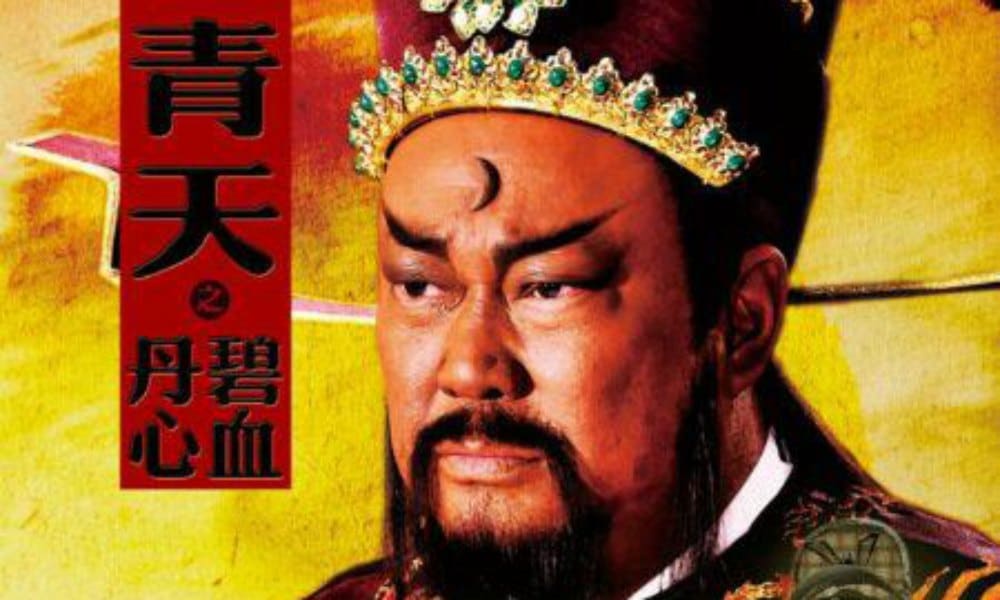
Year: 1993
Episodes: 236
Genre: Historical drama
Produced in Taiwan
Some episodes on Youtube here.
Noteworthy: “From 15 to 236 episodes”
This series is themed around Bao Zheng (包拯), a government official who lived during China’s Song Dynasty, from 999 to 1062, and who was known for his extreme honesty and uprightness. Award-winning Taiwanese actor Jin Chao-chun (金超群) plays this role.
The series was originally scheduled for just 15 episodes, but was received so well when it aired on Chinese Television System, that it was eventually expanded to 236 episodes.
The story of Justice Bao is still a recurring topic in the popular culture of mainland China, Hong Kong, and Taiwan. There was the 2008 Chinese series Justice Bao, and the 2010 New Justice Bao, that also starred Jin Chao-chun.
#17 Romance of the Three Kingdoms (三国演义)

Year: 1994
Episodes: 84
Genre: Historical drama
Directed by: Wang Fulin (王扶林)
Buy original novel here: The Romance of the Three Kingdoms
Some episodes available with English subtitles here.
Noteworthy: “400,000 people involved in the production”
This is another classic TV series produced by the CCTV, and that is also adapted from a classical novel (same title, written by Luo Guanzhong). Its director, Wang Fulin (王扶林), also directed the CCTV’s first TV drama Eighteen Years in the Enemy’s Camp, and A Dream of Red Mansions.
The production of Romance of the Three Kingdoms is especially noteworthy because the productions costs broke all kinds of records at the time; the production of the 84 one-hour episodes took four years, total costs were over 170 million RMB (±US$25 million), and around 400,000 people were involved – the larghest number of people involved in a production in the history of Chinese television. THe show has been watched by some 1,2 billion people around the world (Hongb 2007, 127).
#18 Heaven’s Above (苍天在上)
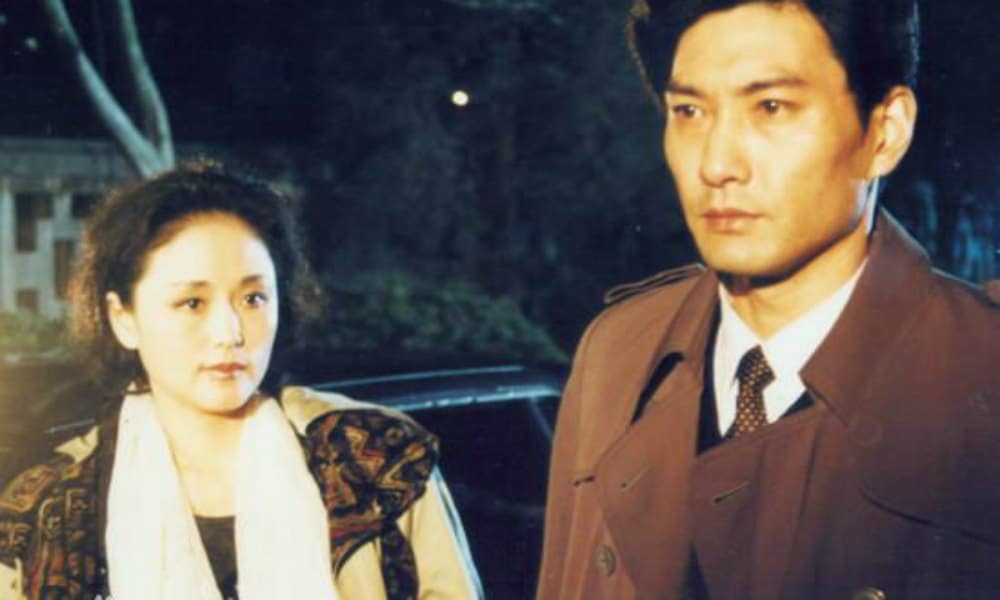
Year: 1995
Episodes: 17
Genre: Corruption drama (or ‘anti-corruption drama’ 反腐剧)
Directed by: Zhou Huan (周寰)
Noteworthy: “First drama about high-level official corruption”
In late 1995, the CCTV drama Heaven Above (Cāngtiān zài shàng) debuted on Chinese TV as the first TV series about high-level official corruption in the PRC.
It would certainly not be the last, as ‘corruption dramas’ became wildly popular – it is the entire focus of the 2014 book Staging Corruption by scholar Ruoyun Bai.
#19 Foreign Babes in Beijing (洋妞在北京)
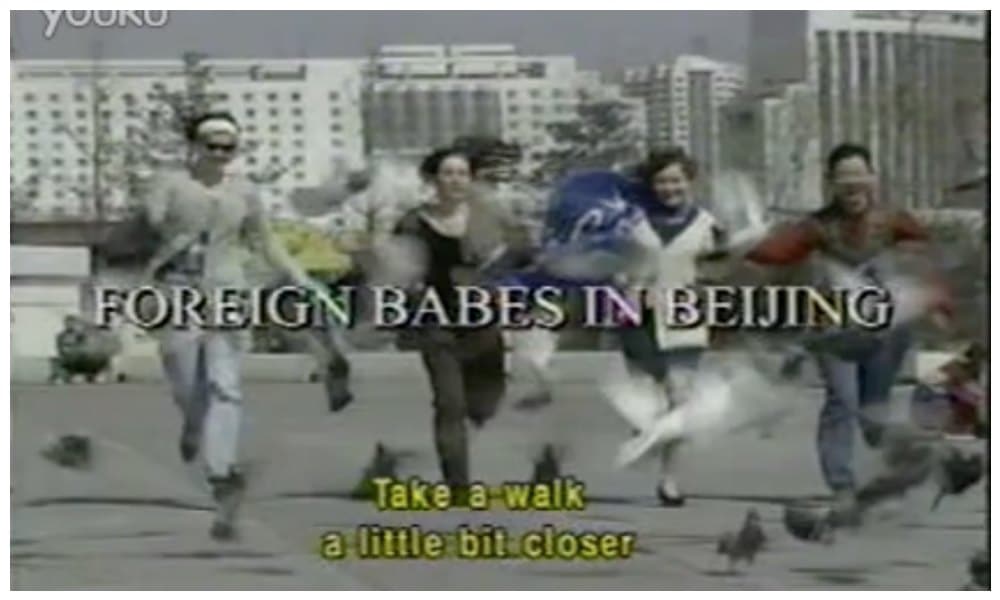
Year: 1995
Genre: Urban drama
Episodes: 20
Noteworthy: “Foreign women in Chinese dramas”
Foreign Babes in Beijing (Yáng niū zài Běijīng) was one of the new kinds of dramas that featured foreigners in China. This series focues on two Chinese men and two American women, of which one seduces one of the Chinese (married) men. The show was a big hit in the mid-1990s.
One of the show’s actresses, Rachel Dewoskin, later wrote the recommended book Foreign Babes in Beijing: Behind the Scenes of a New China about her experiences of playing in the show and her life in China at the time.
#20 My Dear Motherland (我亲爱的祖国)
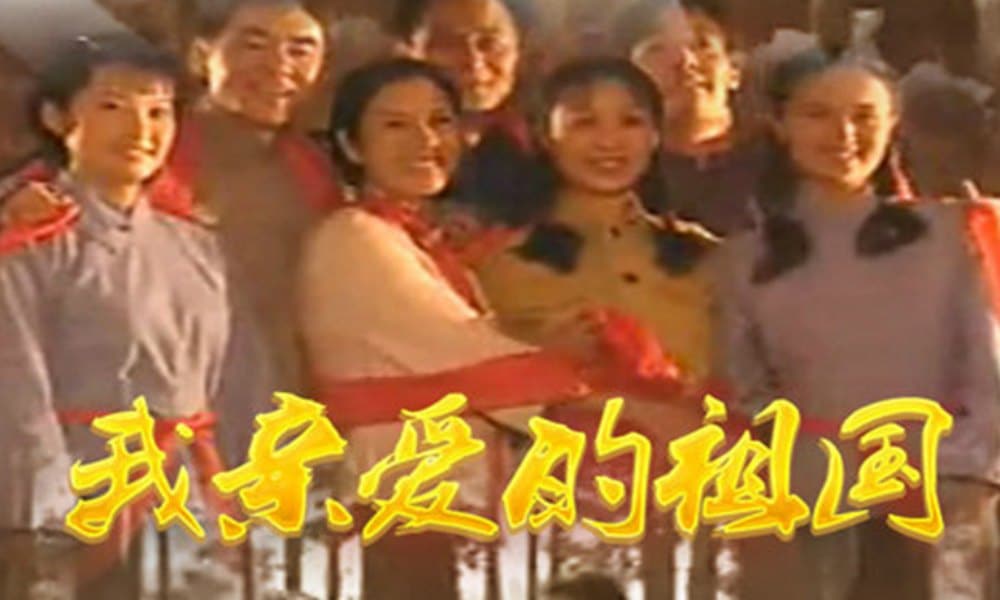
Year: 1999
Episodes: 21
Genre: History/War
Directed by: Liu Yiran (刘毅然)
Watch on Billibilli here, QQ, or on Youtube.
Noteworthy: “Rated with a 9.1”
This 1999 series is still rated with a 9.1 on Douban today. The series tells the experiences and hardships of three generations of Chinese intellectuals during the tumultuous (war)history of China’s 20th century, starting during the May Fourth Movement in 1919.
Chen Jianbin (陈建斌) is one of the famous actors starring in this TV drama as Fang Xuetong.
#21 Yongzheng’s Dynasty (雍正王朝)
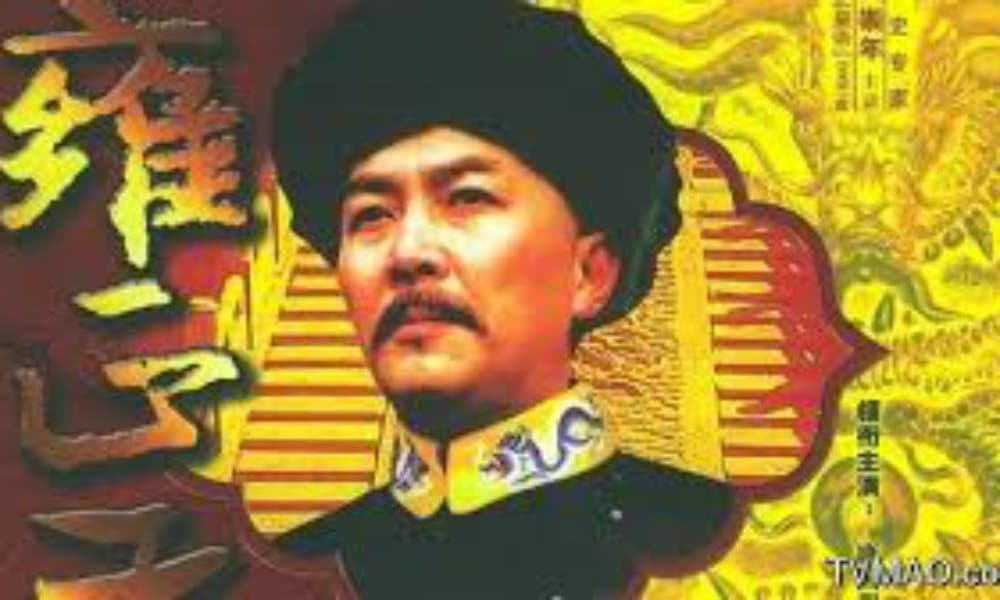
Year: 1999
Episodes: 44
Genre: History/Costume
Noteworthy: “Qing drama as export product”
Yongzheng Dynasty is one of many so-called “Qing dramas” – TV dramas that focus on palace life during the 1644-1911 Qing Dynasty. According to scholar Zhu (2008), one of the reasons that dynasty dramas such as these became so enormously popular in mainland China is that (1) certain social and political issues can be discussed in the shape of stories and settings that are very much removed from modern-day China, allowing for more relaxed censorship policies on storylines and dialogues, and (2) that the reconstruction of “history” allows room for artistic interventions (22).
This epic TV drama was loosely based on historical events in the reigns of the Kangxi and Yongzheng Emperors, and became one of the most watched television series in mainland China of the 1990s. Also outside of China the show became very popular, making the so-called ‘Qing dramas’ an export product.
#22 Towards the Republic (走向共和)
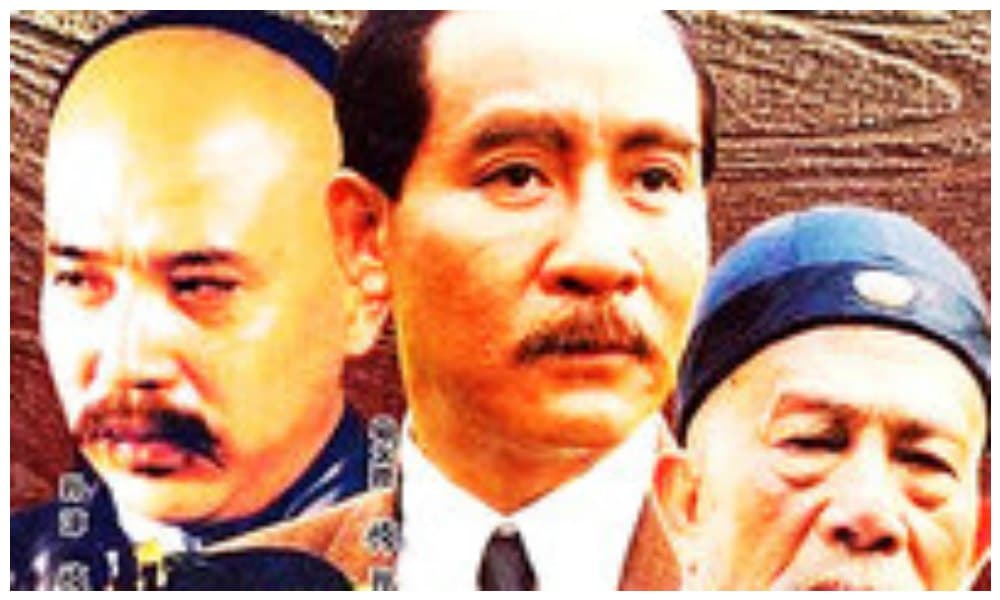
Year: 2003
Episodes: 59 (one hour per episode)
Genre: Historical drama
Directed by: Zhang Li (张黎)
Watch on Youtube , buy on Amazon with English subtitles.
Noteworthy: “59 hours of historical drama”
This is one of the most important TV series in this list. On Sogou ratings, Towards the Republic, which is also known as For the Sake of the Republic (Zǒuxiàng gònghé), is one of netizens’ top all-time favorite series, rated with a 9.7.
The CCTV TV drama tells the story of the historical events in China from 1890 to 1917 – the time during which the Qing Dynasty collapsed, and the Republic of China (1912-1949) was founded. Important historical events such as the First Sino-Japanese War (1894–1895), the Hundred Days’ Reform (1898), the Boxer Rebellion (1900) and the Xinhai Revolution (1911) are all featured in this epic drama, that mainly focuses on the lives of Li Hongzhang (Chinese general in late Qing), Empress Dowager Cixi, Sun Yat-Sen, and Yuan Shikai.
The historical drama was not without controversy, and some parts of it have been censored in mainland China. The original series had 60 episodes, which was later brought down to 59. The TV drama has also been a fruitful topic for scholars for its representation of history. In the 2007 book Representing History in Chinese Media: The TV Drama Zou Xiang Gonghe (Towards the Republic) by Gotelind Mueller, the entire series is analyzed in how history is portrayed and narrated.
#23 Crimson Romance (血色浪漫)
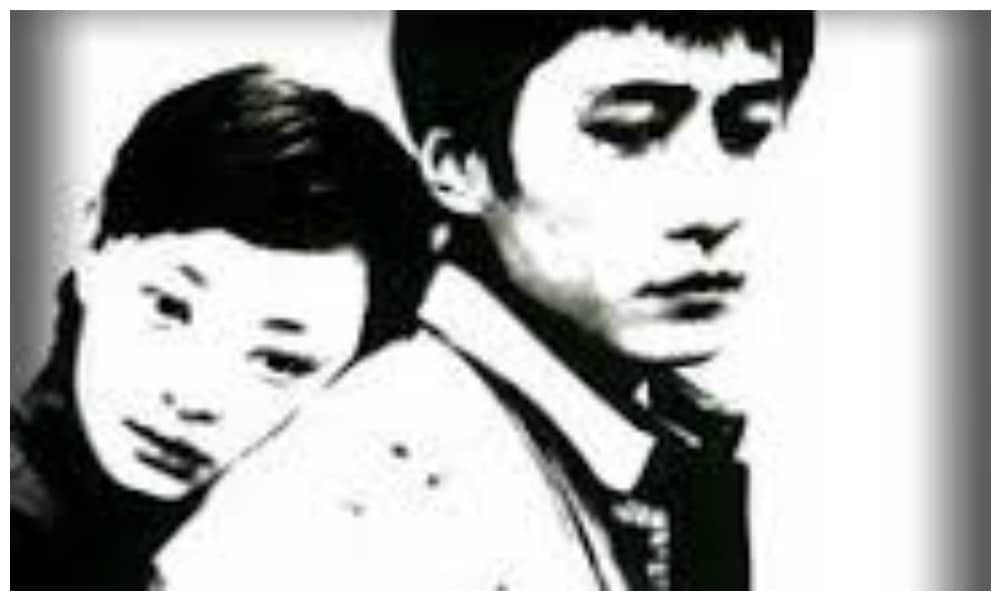
Year: 2004
Episodes: 32
Genre Youth drama
Directed by: Teng Wenji (滕文骥)
Watch on Youtube here.
Noteworthy: “Romantizing the Cultural Revolution”
There are almost 40,000 netizens ranking this 2004 TV drama on Douban, where it scores a 8.7.
The TV drama, which is also known as Romantic Life in English, dramatizes memories of the Cultural Revolution, focusing on a group of friends, their hopes and dreams, and their romantic life. It is set in Beijing in the late period of the Cultural Revolution (1966-1976).
#24 Fu Gui (福贵)
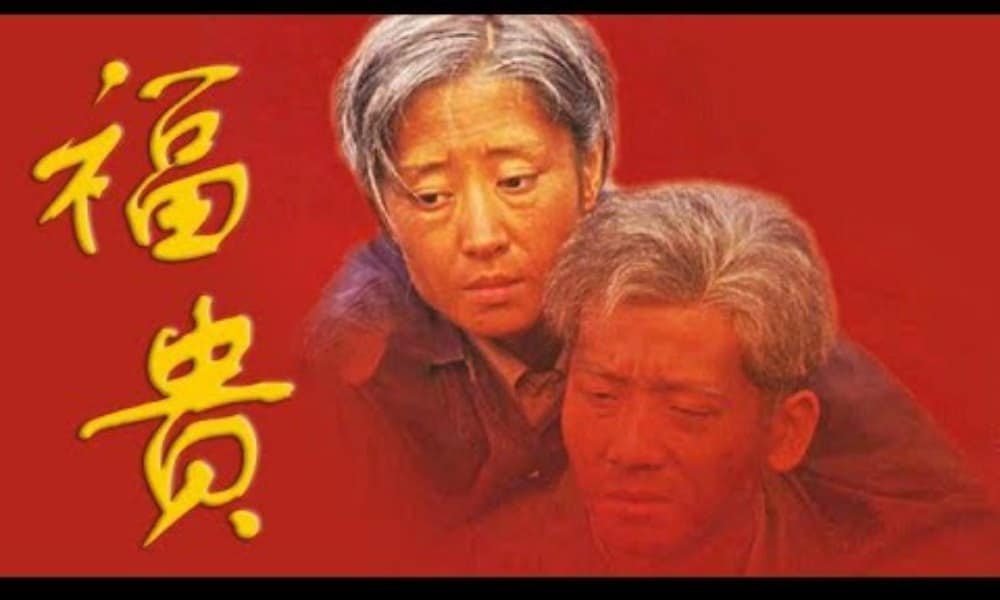
Year: 2005
Episodes: 33
Genre: Family drama
Directed by Zhu Zheng (朱正)
Original novel: To Live: A Novel
Watch on Youtube.
Noteworthy: “Based on the novel To Live“
Chuang Chen (陈创), Liu Mintao (刘敏涛), and Li Ding (李丁) star in this family drama, which is ranked with a 9.4 on Sogou, and 4,5 stars or a 9,4 on Douban (more than 5500 voters).
The drama is based on the 1993 novel by Yu Hua (余华) To Live (活着), which focuses on the struggles of the son of a wealthy land-owner, Xu Fugui, amidst the tumultuous times of the Chinese Revolution. The story became well-known by the movie of the same title by Zhang Yimou, which became an international success.
#25 Ming Dynasty in 1566 (大明王朝1566)

Year: 2007
Episodes: 46
Genre: Historical drama
Directed by: Zhang Li (张黎)
Available with English subtitles on Youtube
Noteworthy: “Scoring a 9.7 on Douban, rated by 55,000 users”
Ming Dynasty in 1566 (Dàmíng wángcháo), starring Chinese actor Chen Baoguo (陈宝国), is a Chinese television series based on historical events during the reign of the Jiajing Emperor (1507-1567) of the Ming dynasty. It was first broadcast on Hunan TV in China in 2007.
On Douban, more than 55000 people have reviewed this movie at time of writing, coming up with a score of 9.7, one of the highest in this list. The drama was also broadcasted in other countries, such as South Korea.
#26 Dwelling Narrowness (蜗居)
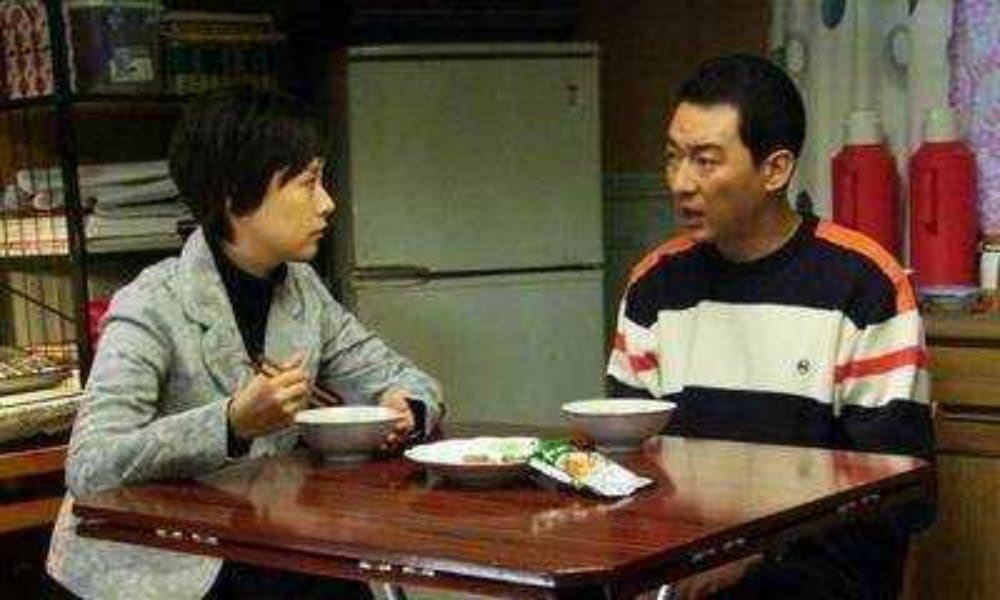
Year: 2009
Episodes: 35
Genre: Urban Drama
Directed by: Teng Huatao (滕华涛)
Watch on Youtube here.
Noteworthy: “Focusing on China’s urban real estate bubble”
Also known as Snail House, this TV drama was all the rage back in 2009 for its focus on the crazy housing market in urban China and the lives of ordinary Chinese who are struggling to survive in the city while living in small spaces. Dwelling Narrowness, based on a novel by the same name, tells the story of two sisters with very different lifestyles who are looking to find a home in Shanghai (or actually, the fictional city of Jiangzhou, that basically represents Shanghai), and improve their quality of life, each in their own way.
The real estate bubble is a major theme throughout these series, and the TV drama was much-discussed within the frame of Chinese urban dwellers becoming “house slaves” (房奴). In the year of its broadcast, Wall Street Journal featured an article dedicated to the series and the discussions it triggered online.
#27 The Red (红色)
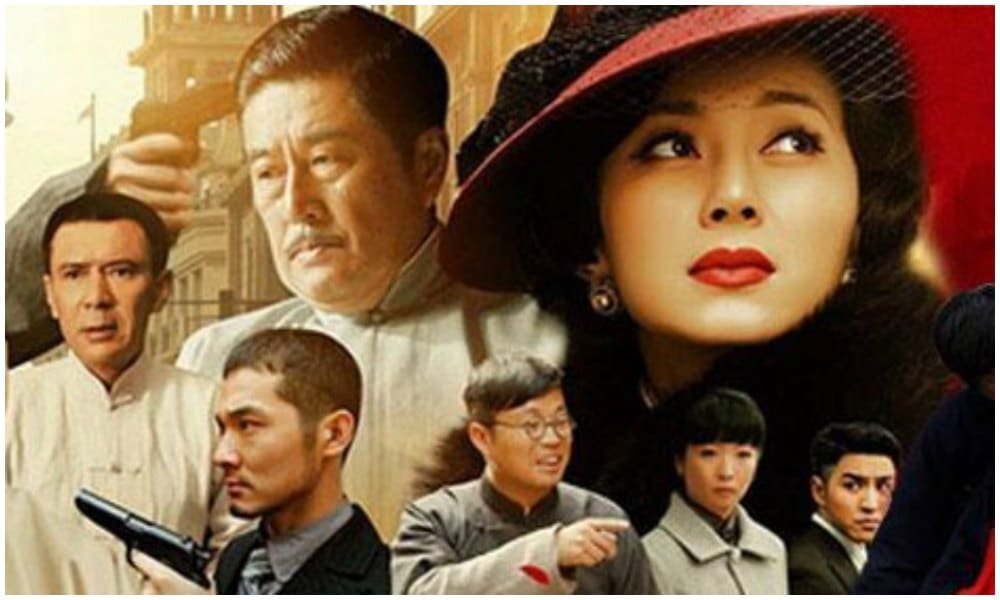
Year: 2014
Episodes: 48
Genre: War drama
Directed by Yang Lei (杨磊)
Noteworthy: “Patriotism as its key theme”
War drama The Red (Hóngsè) receives a 9.2 on Sogou, showing its success over the last four years.
Edward Zhang (Zhang Luyi 张鲁一) stars in this drama as an ordinary worker in Shanghai who gets caught up in underground circles at the start of the Second Sino-Japanese War, and unexpectedly becomes part of a decisive moment in Chinese modern history. Perhaps unsurprinsginly, ‘Patriotism’ is a key theme throughout The Red.
#28 Moral Peanuts – Final Season (毛骗 终结篇)
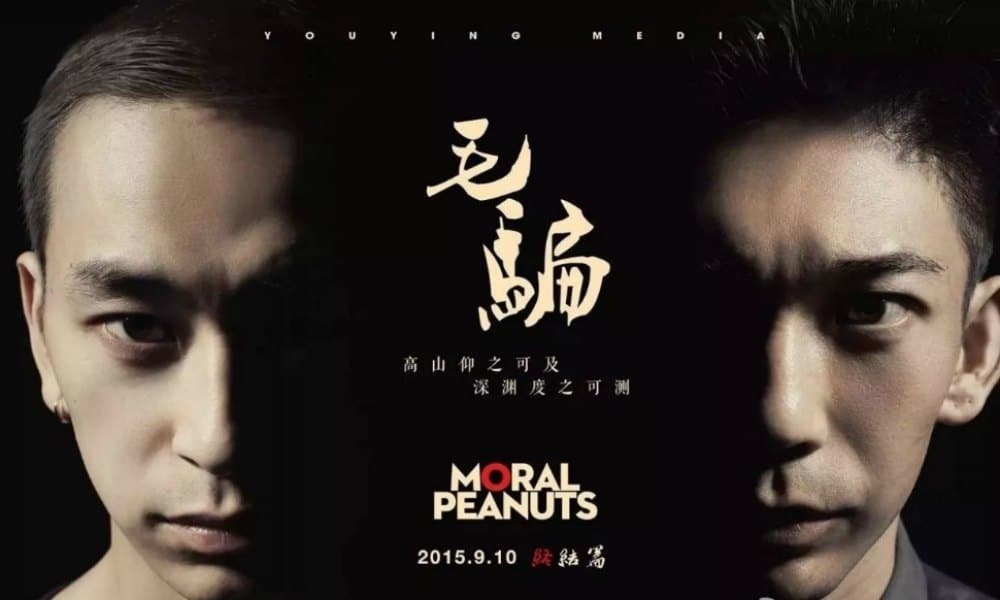
Year: 2015
Episodes: 10 (in this season)
Genre: Crime/Suspense
Directed by: Li Hongchou (李洪绸)
Watch on Youtube here.
Noteworthy: “A gang of friends who con people out of their money”
Rated with a 9.6 on Sogou and a 9.6 by more than 26,000 people on Douban, this TV drama has already become somewhat of a classic in the few years since its airing.
Moral Peanuts is a multiple season series (started in 2010), that follows a gang of five young friends who live together and earn their living in a fraudulent way. The series is characterized by its cliffhanger endings and its ‘grey’ portrayals of its characters.
#29 In the Name of the People (人民的名义)
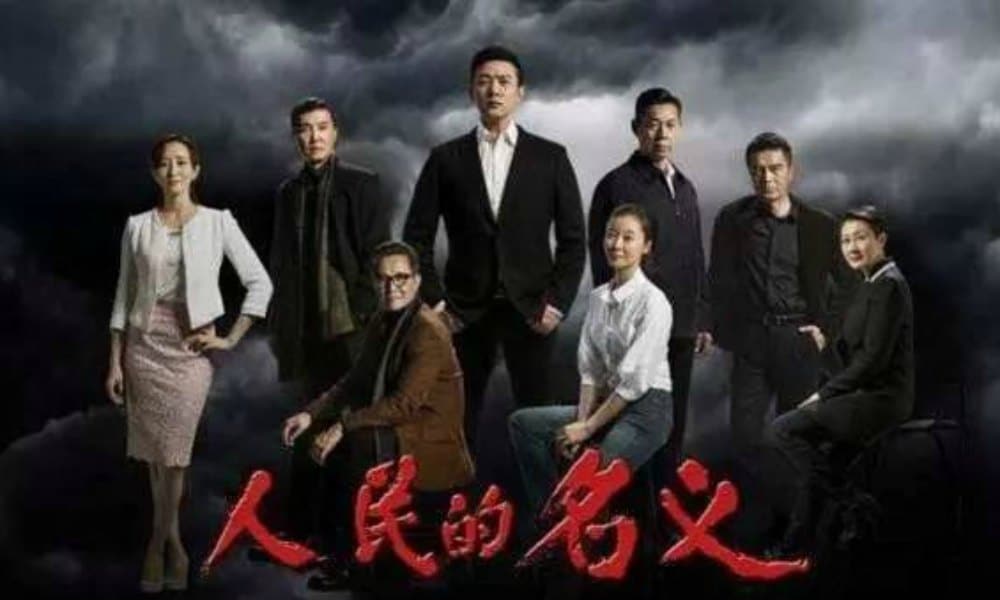
Year: 2017
Episodes: 55
Genre: Corruption drama
Directed by: Li Lu
Available with English subtitles here.
Noteworthy: “The Chinese ‘House of Cards'”
In the Name of the People is a 2017 highly popular Chinese TV drama series based on the web novel of the same name by Zhou Meisen (周梅森). Its plot revolves around a prosecutor’s efforts to unearth corruption in a present-day fictional Chinese city by the name of Jingzhou.
In 2017, this TV drama became a true craze on Chinese social media and received a lot of coverage in (international) media for being comparable to the American political drama House of Cards. The BBC described it as “the latest piece of propaganda aimed at portraying the government’s victory in its anti-corruption campaign.”
#30 White Deer Plain (白鹿原)
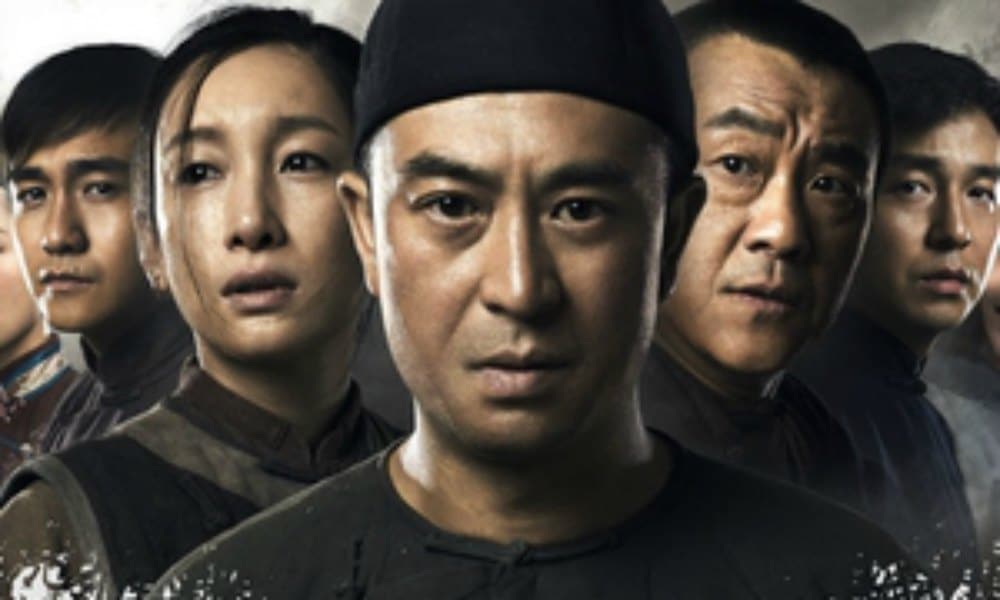
Year: 2017
Genre: Contemporary historical drama
Episodes: 85
Directed by: Liu Jin (刘进)
WAtch with English subs at New Asian TV here.
Noteworthy: “The epic TV drama took nearly 17 years to prepare and produce “
This TV drama has consistently been ranking number one in Baidu’s and Weibo’s popular drama charts last year, and is now ranked with an 8.8 score on sites such as Douban. Although it is somewhat tricky to call such a present-day drama a ‘classic’, we’ll take the chance.
White Deer Plain is based on the award-winning Chinese literary classic by Chen Zhongshi (陈忠实) from 1993. The preparation and production of this series reportedly took a staggering 17 years and a budget of 230 million yuan (US$33.39 million).
The success of the novel this TV drama is based on, has previously been compared to that of One Hundred Years of Solitude by Gabriel García Márquez. White Deer Plain follows the stories of people from several generations living on the ‘White Deer Plain,’ or North China Plain in Shaanxi province, during the first half of the 20th century. This tumultuous period sees the Republican Period, the Japanese invasion, and the early days of the People’s Republic of China. The series is great in providing insights into how people used to live, from dress to daily life matter. The scenery and sets are beautiful.
Some Book Recommendations Based on This List:
* Chinese Television in the Twenty-First Century: Entertaining the Nation (Routledge Contemporary China Series Book 121)
* Staging Corruption: Chinese Television and Politics (Contemporary Chinese Studies)
* Television in Post-Reform China: Serial Dramas, Confucian Leadership and the Global Television Market (Routledge Media, Culture and Social Change in Asia)
* TV Drama in China (TransAsia: Screen Cultures)
* Media in China: Consumption, Content and Crisis
Want to know more? Check out our various Top 10s of popular Chinese TV Dramas from 2013 to present here.
By Manya Koetse
Follow @whatsonweibo
*1(We kindly ask not to reproduce this list without permission – please link back if referring to it).
References
Bai, Ruoyun. 2007. “TV Dramas in China – Implications of the Globalization.” In Manfred Kops and Stefan Ollig (eds), Internationalization of the Chinese TV sector, 75-99. Berlin: LIT Verlag.
Bai, Ruoyun. 2014. Staging Corruption: Chinese Television and Politics. Vancouver: University of British Columbia Press.
Barmé, Geremie. 2012. “Red Allure and the Crimson Blindfold.” China Perspectives, 2012/2, 29-40.
Di, Miao. 2008. “A Brief History of Chinese Situation Comedies.” In Ruoyun Bai, Ying Zhu, Michael Keane (eds), TV Drama in China, 117-129. Hong Kong: Hong Kong University Press.
Hong, Junhao. 2007. “The Historical Development of Program Exchange in the TV Sector.” In Manfred Kops and Stefan Ollig (eds), Internationalization of the Chinese TV sector, 25-40. Berlin: LIT Verlag.
–. 2007b. “From Three Kingdoms the Novel to Three Kingdoms the Television Series: Gains, Losses, and Implications.” In Kimberly Besio and Constantine Tung (eds), Three Kingdoms and Chinese Culture, 125-143. Albany: State University of New York Press.
Zhu, Ying. 2008. “Yongzheng Dynasty and Totalitarian Nostalgia.” In Bai R, Keane M, Zhu Y. (eds), TV Drama in China, 21-33. Hong Kong: Hong Kong University Press; 2008
Wang, Min and Arvind Singhal. 1992. “Kewang, A Chinese Television Soap Opera With A Message.” Gazette 49: 177-192.
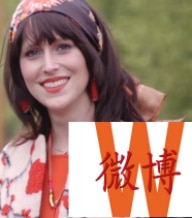
Directly support Manya Koetse. By supporting this author you make future articles possible and help the maintenance and independence of this site. Donate directly through Paypal here. Also check out the What’s on Weibo donations page for donations through creditcard & WeChat and for more information.
Spotted a mistake or want to add something? Please let us know in comments below or email us.
©2018 Whatsonweibo. All rights reserved. Do not reproduce our content without permission – you can contact us at info@whatsonweibo.com
Manya is the founder and editor-in-chief of What's on Weibo, offering independent analysis of social trends, online media, and digital culture in China for over a decade. Subscribe to gain access to content, including the Weibo Watch newsletter, which provides deeper insights into the China trends that matter. More about Manya at manyakoetse.com or follow on X.

Chinese Movies
Why Chinese Hit Movie “Her Story” is ‘Good Stuff’: Stirring Controversy and Celebrating Female Perspectives
China’s end-of-year movie hit, Her Story, is sparking debates and highlighting the rising influence of Chinese female directors.
Published
1 month agoon
December 7, 2024
The Chinese comedy-drama Her Story (好东西, literally “Good Stuff”), directed by Shao Yihui (邵艺辉), has been gaining attention and sparking discussions on Weibo since its late November release in mainland China.
The film features an all-star cast including Song Jia (宋佳), Zhong Chuxi (钟楚曦), Zeng Mumei (曾慕梅), Zhao Youting (赵又廷), and Zhang Yu (章宇). It tells a quirky yet heartfelt story about two women: Wang Tiemei (王铁梅), a self-reliant single mom juggling life and work, and Xiao Ye (小叶), a free-spirited young woman navigating her chaotic relationships.
Their friendship begins when Xiao Ye starts babysitting Tiemei’s nine-year-old daughter, Wang Moli (王茉莉). Xiao Ye introduces her drummer friend, Xiao Ma (小马), to teach Moli how to play the drums, but Xiao Ma’s presence stirs jealousy in Tiemei’s unemployed ex-husband, who schemes to regain his place in the family. Blending humor with poignant insights, the film explores themes of imperfect love, friendship, and the messy process of rebuilding lives.
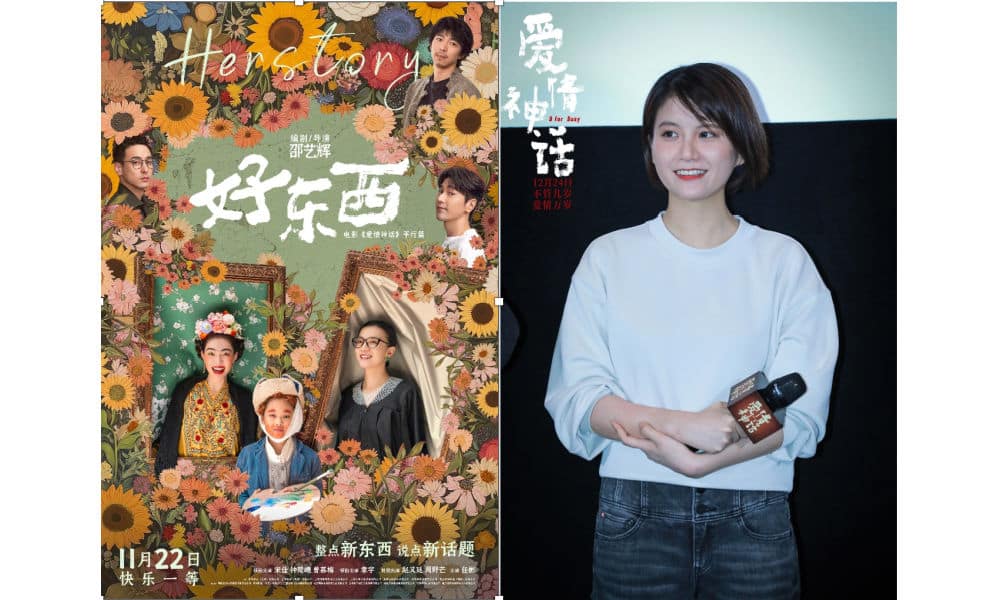
(“Her Story” poster and the director Shao Yihui)
The film also addresses a range of hot societal issues through dialogues woven into everyday interactions, touching on topics like menstruation stigma, sexual consent, feminism, and how family dynamics can impact personal development.
In just eight days, Her Story surpassed 300 million RMB ($41 million) at the Chinese box office (#好东西票房破3亿#). Two days later, on December 2, it exceeded 400 million RMB (#好东西票房破4亿#), and on December 7 news came out that it had surpassed the 500 million RMB ($68.7 million) mark at the box office.
The film also achieved an impressive 9.1/10 rating on Douban, a Chinese platform similar to IMDb, making it the highest-rated domestic film on Douban in 2024.
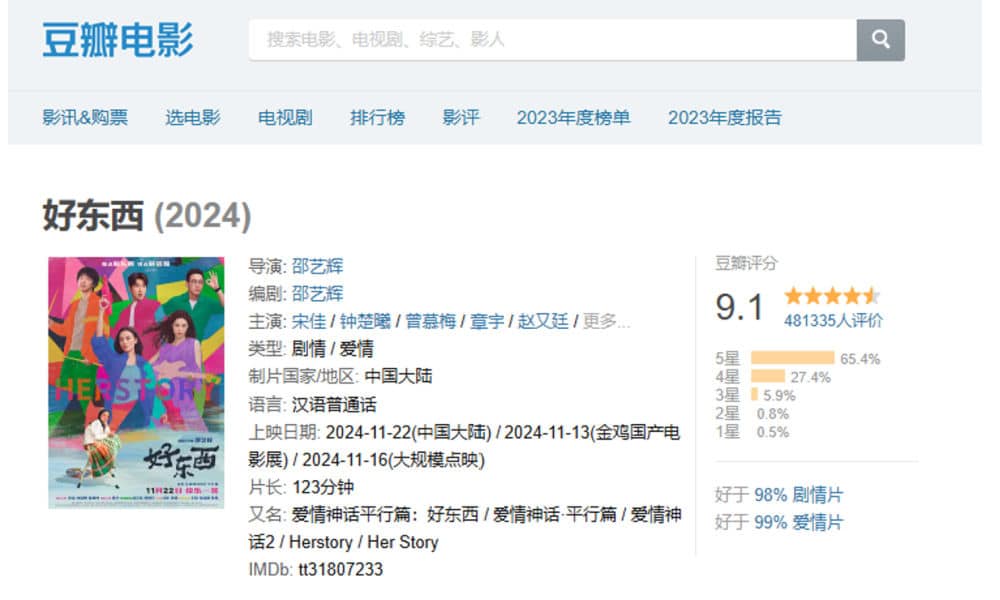
(“Her Story” on Douban)
Notably, 65.4% of voters awarded it five stars, while only 0.5% gave it one star.
Conflicting Views: From Feminist Film to Chick Flick
Despite its huge success, it is almost unavoidable for a movie this big to come without controversy. The film sparked debate on Hupu (虎扑), a platform focused on sports and men’s lifestyle, where it received a lower score of 5/10. While 33.1% of users gave it five stars, 58.4% rated it one star, reflecting divided opinions.
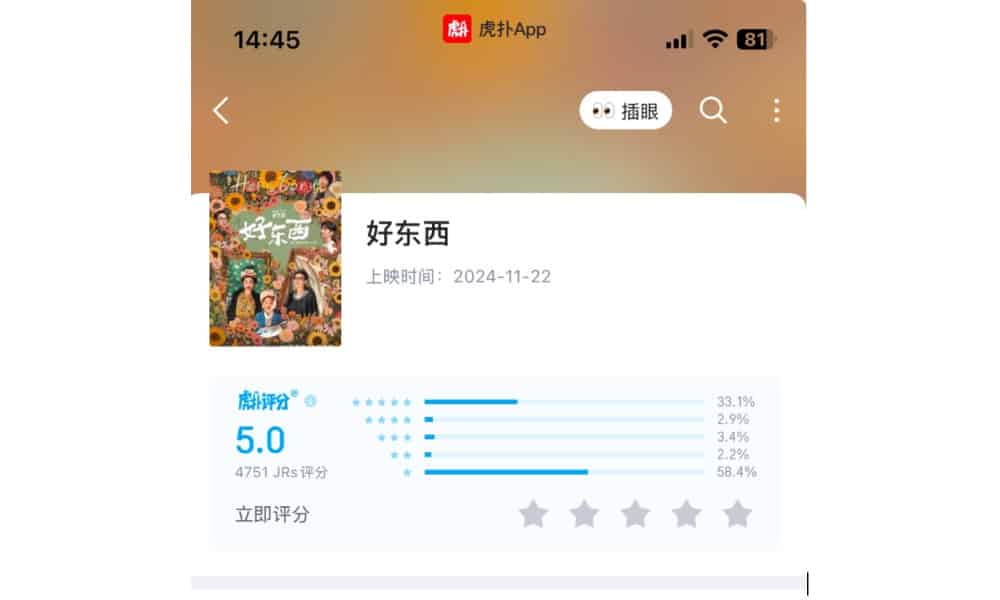
(“Her Story” on Hupu)
Much of the criticism comes from male viewers who feel the film undermines men by portraying them in non-traditional ways and omitting proper names for male characters, such as referring to the ex-husband only as “the ex-husband” (前夫). On the other hand, many female viewers resonate with the film’s female-centered perspective, with one scene blending household sounds and Xiao Ye’s recordings praised as a standout cinematic moment of 2024.
Interestingly, not all women appreciated the film either. A Weibo user, identified as a female scriptwriter for two Chinese TV dramas, emphasized that most of the producers of the film are male. She accused the director of hypocrisy, claiming Shao accepts money and resources from privileged men to create films that encourage female audiences to look down on average men.
She wrote, “I hope that everyone who believes in the ‘ghg’ [girl help girl] myth and supports female idols will also congratulate the male producers who will earn a lot of money from the film.”
Zhou Liming (周黎明), one of China’s most influential film critics, noted two extreme perspectives in film reviews. Some critics label the film as a “boxer film” (拳师电影) or an “extreme feminist film.”
However, the film itself suggests otherwise, as reflected in Moli’s line, “I don’t want to box,” when her father tries to convince her to take up boxing. Some audiences interpreted the line as rejecting extreme feminist messages.
In China, the term “boxer” (拳师) is used to critique certain feminists. The second character in the word for feminists (“权” [quán] in 女权主义者) is pronounced the same as the first character in “boxer” (“拳” [quán] in 拳师). This term often mocks behaviors seen as overly aggressive or lacking nuance in feminist discourse, such as avoiding dialogue or oversimplifying social issues.
Some also dismissed the film as a “chick flick,” a casual term for romantic comedies, which Zhou argued unfairly minimizes its significance. He likened the film to Woody Allen’s Annie Hall, suggesting that, much like Allen’s work, Her Story transcends gender differences and reflects the cultural zeitgeist of its time.
Despite the controversy, the film has been praised by notable figures like actor Zhang Ruoyun (张若昀), who called it “super good, super awesome, and super cute” (“超级好、超级牛、超级可爱的东西”). Zhang described the movie as tackling absurd yet realistic issues from a female perspective with humor and depth.
The Increasing Influence of Female Directors in China
At the end of Her Story, Tiemei’s daughter, Moli, nervously prepares for her first drum performance. Despite her hesitation, she gathers her courage and steps on stage. This moment reminded some viewers of a similar scene in another female-directed film this year, YOLO (麻辣滚烫), where the protagonist gears up for a boxing match.
YOLO is a 2024 comedy-drama directed by Jia Ling (贾玲), starring Jia Ling and Lei Jiayin (雷佳音). A comedic adaptation of the Japanese film 100 Yen Love (2014), it tells the story of Du Leying (杜乐莹), a woman facing personal struggles who turns to boxing after meeting coach Hao Kun (昊坤). Through her journey, she finds a new direction in life after their breakup. Grossing USD 496 million worldwide, YOLO became the highest-grossing Chinese film of 2024.
These parallels between Her Story and YOLO highlight a broader trend: the growing prominence of female directors in Chinese cinema. Beyond the discussions of plot and central themes, Her Story reflects the increasing success and influence of women filmmakers in the industry.
In 2024, female directors have made a notable impact on Chinese cinema, with their films achieving both critical acclaim and box office success. Their works also spark conversations about the need for more diverse perspectives in the industry.
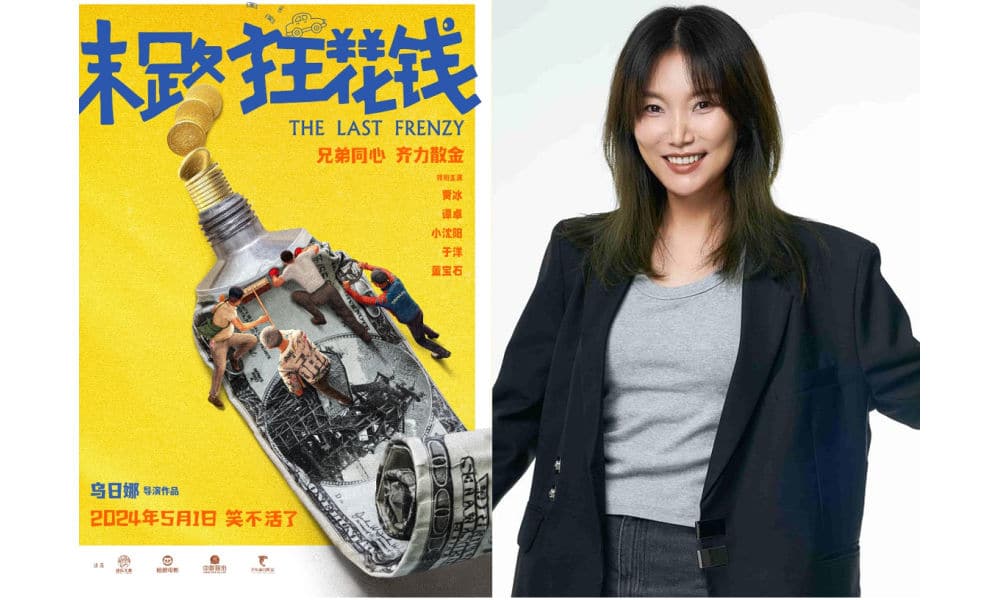
(“The Last Frenzy” poster and the director Wu Rina)
The Last Frenzy (末路狂花钱), directed by Wu Rina (乌日娜), premiered on May 1. This comedy follows Jia Youwei (贾有为), a man diagnosed with a terminal illness, who decides to sell his assets and live fully with his friends. Despite mixed reviews and a Douban score of 5.9, the film grossed over 700 million RMB ($96 million) by May 31, becoming a major box office hit.

(“Stand By Me” poster and the director Yin Ruoxin)
Stand By Me (野孩子, literally “Wild Kids”), directed by Yin Ruoxin (殷若昕), premiered on September 13. Starring Wang Junkai (王俊凯), it tells the story of two neglected children, Ma Liang (马亮) and Xuan Xuan (轩轩), who form a makeshift family while facing life’s challenges. With a Douban rating of 6.7, the film grossed 241 million RMB by October 9.
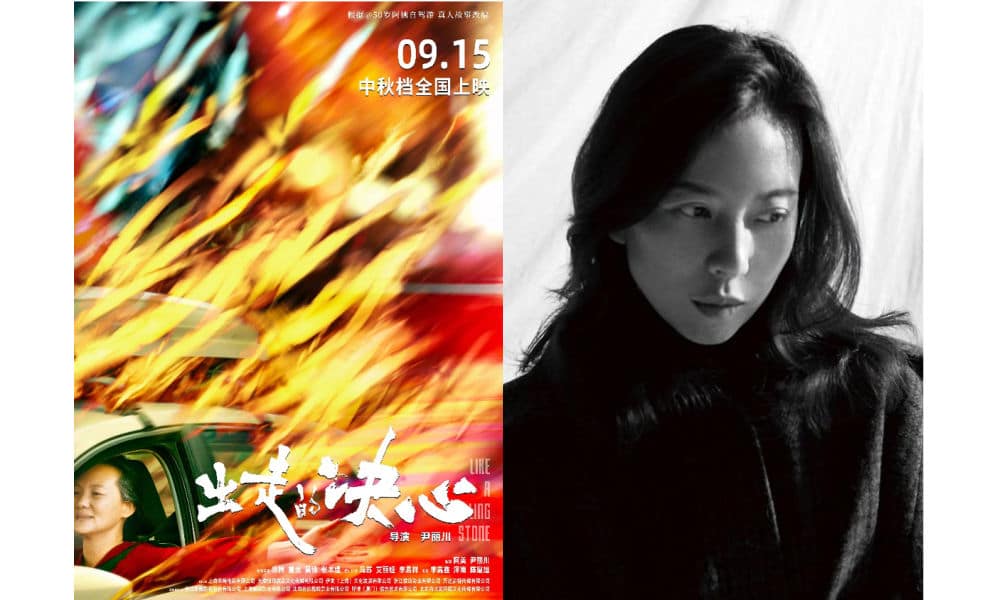
(“Like A Rolling Stone” poster and the director Yin Lichuan)
Like A Rolling Stone (出走的决心, literally “The Determination to Leave”), directed by Yin Lichuan (尹丽川), premiered the same week as Stand By Me. Inspired by Su Min (苏敏), a 50-year-old woman who embarked on a solo road trip, the film explores themes of self-discovery and the struggles of neglected women. Featuring Yong Mei (咏梅), the film earned praise for its authenticity, achieving a Douban score of 8.8 and grossing over 123 million RMB.
To the Wonder (我的阿勒泰, literally “My Altay”), a film-like TV drama directed by Teng Congcong (滕丛丛), adapts Li Juan’s (李娟) memoir. Starring Ma Yili (马伊琍), it tells the story of Li Wenxiu (李文秀), a young woman finding her place in her hometown of Altay after setbacks in the big city. Known for its poetic storytelling and portrayal of ethnic harmony, the series has a Douban score of 8.9 from over 300,000 ratings, ranking among the top dramas of 2024.
“An Era Where Women Are Being Seen”
The growing influence of female directors has sparked discussions about how women’s perspectives are challenging traditional storytelling.
Some Weibo users compared a scene from Her Story, where Tiemei scolds a man for urinating roadside, to a similar moments in YOLO. In YOLO, Hao Kun’s attempt to urinate roadside is humorously interrupted by car headlights. Such scenes highlight how female directors reinterpret everyday behaviors, inviting audiences to question societal norms.
Her Story has already been released in several countries, including the United States, Australia, Germany, and the United Kingdom, with more international releases to follow.
The success of Her Story, the conversations it inspires, and its contribution to highlighting female perspectives in film reflect the evolving dynamics of contemporary cinema and the strengthening of female voices in traditionally male-dominated industries.
On Weibo, many view this as a positive development. One commenter wrote:
“Her Story [好东西/”Good Stuff”] is truly ‘good stuff.’ (..) At the start of this year, I watched YOLO, and at the end of this year, I watched Her Story. Suddenly, I feel very grateful to live in this era—the era where women are gradually being ‘seen.’ Both films hold very special meaning for me. It feels like everything has come together perfectly. I hope to see more outstanding works from female directors in the future, and I look forward to an era where there’s no gender opposition, only mutual equality.”
By Wendy Huang
Follow @whatsonweibo
Edited for clarity by Manya Koetse
Spotted a mistake or want to add something? Please let us know in comments below or email us. Please note that your comment below will need to be manually approved if you’re a first-time poster here.
©2024 Whatsonweibo. All rights reserved. Do not reproduce our content without permission – you can contact us at info@whatsonweibo.com
China Arts & Entertainment
Chiung Yao’s Suicide Farewell Letter: An English Translation
Published
1 month agoon
December 7, 2024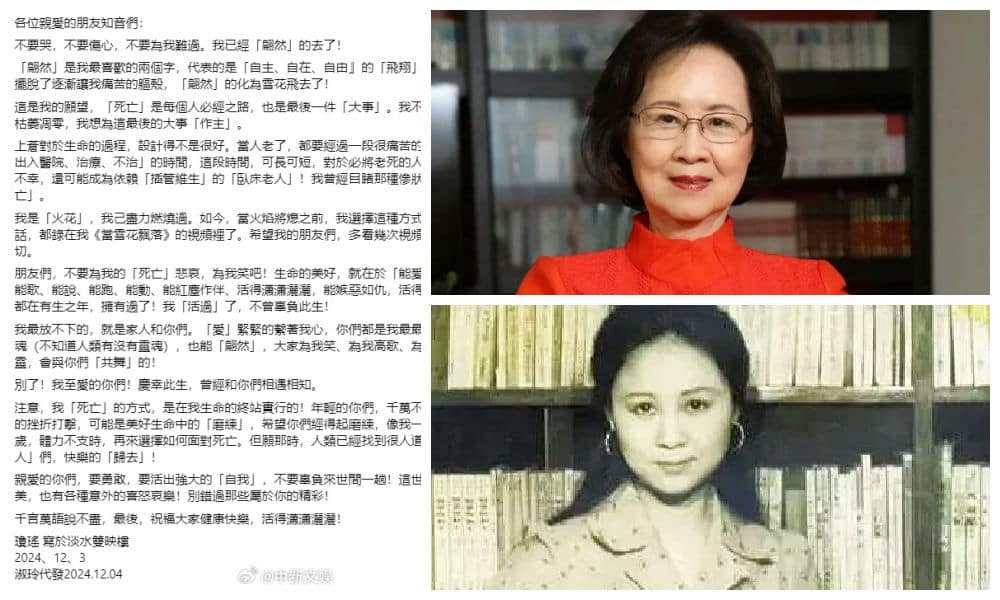
Chinese netizens mourned the passing of Taiwanese writer Chiung Yao (琼瑶) this week. Chiung Yao, one of China’s most beloved romance novelists, passed away at the age of 86.
Among her many works, Chiung Yao is cherished by many netizens in mainland China as part of their collective memories from the 1980s and 1990s. Some of the most iconic Chinese dramas, such as My Fair Princess (also: Return of the Pearl Princess, 還珠格格), were written by Chiung Yao.
On December 4, she was found on her sofa at home, leaving behind a suicide note. The cause of death was determined to be asphyxiation due to carbon monoxide poisoning.
In her farewell letter to loved ones and fans, she wrote the following:
“To all my dear friends:
Do not cry, do not grieve, and do not feel sad for me. I have already fluttered away [翩然 piānrán] effortlessly.
I love the word “翩然” [piānrán]. It represents flying in the air independently, easily, and freely. Elegantly and gracefully, I have shed the body that gradually caused me pain and have ‘fluttered away,’ transforming into snowflakes flying into the sky.
This was my wish. “Death” is a journey everyone must take—it is the final significant event in life. I did not want to leave it to fate, nor did I want to wither away slowly. I wanted to have the final say in this final event.
God has not designed the process of life particularly well. When a person grows old, they have to go through a very painful period of ‘becoming weak, degeneration, illness, hospitalization, treatment, and fatal illness.’ This period, may it be long or short, is a tremendous torment for those who are destined to grow old and die! Worst of all, some may become bedridden, dependent on tubes for survival. I have witnessed such tragedies, and I do not want that kind of “death.”
I am a “spark,” and I have already burned as brightly as I could. Now, before the flame finally dims, I have chosen this way to make a light departure. I have recorded everything I wish to say in my video “When Snowflakes Fall Down” (当雪花飘落). I hope my friends can watch it a few times to grasp everything I wanted to express.
Friends, do not mourn my death but smile for me! The beauty of life lies in the ability to love, hate, laugh, cry, sing, speak, run, move, be together until death parts us, live freely, despise evil with a passion, and live life boldly. I have experienced all these things in my lifetime! I truly ‘lived’ and did not waste this life.
What I find hardest to let go of are my family and all of you. “Love” is what is tightly bound to my heart, and I am reluctant to part with you. To allow my soul (if humans even have souls) to also ‘flutter away,’ please laugh for me, sing loudly for me, and dance in the breeze for me! My spirit in the heavens will dance together with you!
Farewell, my dearest ones! I am grateful for this life, where I had the chance to meet and know you all.
Take note of the way I died: I was at the final station of my life! For those of you who are still young, never give up on life lightly. Momentary setbacks or blows may be the “training” for a beautiful life. I hope you will be able to endure those, as I did, and live to 86, 87.. years old. When your physical strength fades, then decide how to face death. By then, perhaps they will have found more humane ways to help the elderly “leave joyfully.”
Dear friends, be brave, be the greatest version of yourself. Do not waste your journey through this world! Though this world is not perfect, it is filled with unexpected joys, sorrows, and laughter. Don’t miss out on all the wonders out there for you.
There are a thousand more things to say, but in the end, I wish everyone health, happiness, and a life of freedom and joy.”
This translation was previsously published on my X channel here.
By Manya Koetse
(follow on X, LinkedIn, or Instagram)
Spotted a mistake or want to add something? Please let us know in comments below or email us. First-time commenters, please be patient – we will have to manually approve your comment before it appears.
©2024 Whatsonweibo. All rights reserved. Do not reproduce our content without permission – you can contact us at info@whatsonweibo.com.
Subscribe

Weibo Watch: A New Chapter

Our Picks: Top 10 Chinese Buzzwords and Phrases of 2024 Explained

Weibo Watch: Christmas in China Is Everywhere and Nowhere

12-Year-Old Girl from Shandong Gets Infected with HPV: Viral Case Exposes Failures in Protecting Minors

Explaining the Bu Xiaohua Case: How One Woman’s Disappearance Captured Nationwide Attention in China

Death of Chinese Female Motorcycle Influencer ‘Shigao ProMax’ Sparks Debate on Risky Rides for Online Attention

Hidden Hotel Cameras in Shijiazhuang: Controversy and Growing Distrust

The Price of Writing Smut: Inside China’s Crackdown on Erotic Fiction

Why the “人人人人景点人人人人” Hashtag is Trending Again on Chinese Social Media

The Hashtagification of Chinese Propaganda

Controversial Wanghong Livestreamers Are Becoming a Weibo Staple in China

Weibo Watch: “Comrade Trump Returns to the Palace”

The ‘Cycling to Kaifeng’ Trend: How It Started, How It’s Going

Hu Xijin’s Comeback to Weibo

The Viral Bao’an: How a Xiaoxitian Security Guard Became Famous Over a Pay Raise
Get in touch
Would you like to become a contributor, or do you have any tips or suggestions? Get in touch here!
Popular Reads
-

 China Insight8 months ago
China Insight8 months agoThe Tragic Story of “Fat Cat”: How a Chinese Gamer’s Suicide Went Viral
-

 China Music9 months ago
China Music9 months agoThe Chinese Viral TikTok Song Explained (No, It’s Not About Samsung)
-

 China Insight10 months ago
China Insight10 months agoThe ‘Two Sessions’ Suggestions: Six Proposals Raising Online Discussions
-

 China Digital7 months ago
China Digital7 months agoChina’s 2024 Gaokao Triggers Online Discussions on AI











Ben
November 16, 2018 at 10:33 am
In the picture for “#18 Heaven’s Above (苍天在上)”, the character seems to be holding a smartphone – possibly an iPhone given what looks to be an apple on the back side. That would be anachronistic for a 1995 series I think?
Admin
November 16, 2018 at 10:41 am
Well spotted, Ben! You’re right! That was an image from a modern remake mini-series of Heaven’s Above (苍天在上), not the 1995 version. We’ve now replaced with an image from the original show. Thanks for the heads up 🙂
autraka
November 22, 2018 at 6:59 am
Wish you included 武林外传、还珠格格 and more TV dramas based on 金庸‘s novels.
Brown
January 2, 2019 at 10:58 am
Chinese TVs set in Qing Dynasty are an amazing series for me. I love the Story of Yanxi Palace especially. I have found the top 10 related Qing Dynasty TVs from here
https://chinausual.com/top-10-chinese-tv-series-set-in-qing-dynasty/
Jason
February 23, 2019 at 9:57 am
Actually “White Deer Plain” 白鹿原 is in Shaanxi(陕西). Not Shanxi(山西)。